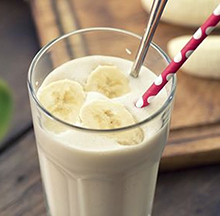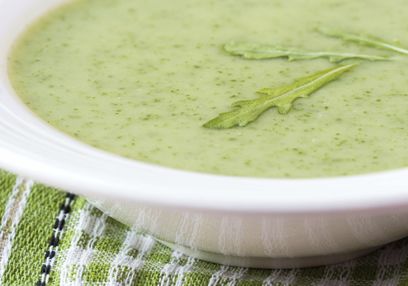First, let me preface this with a short lesson in biochemical nutrition. We now know that the body handles calories differently depending on the source of food. For instance, yes, 1 calorie of soda will yield the equivalent energy of 1 calorie of beans, but the cellular signaling, biochemical pathway, and the body’s need to store that calorie versus burn it will differ.
This is why calorie counting does not work: inevitably, a person who consumes 200 calories of soda daily will result in a very different metabolic composition compared to someone who consumes 200 calories of beans per day. Simply meeting your 2,000 calorie-a-day quota by summing the calories from processed foods, soda, and sweets will not make you lose weight. In fact, it will do the exact opposite.
Now, knowing that not all calories are metabolized equally, the same concept goes for eating at night. Eating a light, healthy snack before bed can actually provide a number of health benefits. Consistently eating a heavy dinner late at night, on the other hand, can be detrimental to your weight loss goals.
Night eating is appropriate and beneficial in specific contexts. For example, if you have not met your metabolic needs for the day and are still hungry after eating a healthy, balanced dinner, a snack before bed will leave you feeling satisfied and keep your hunger hormones in check.
Explained below are the benefits of night eating, and also its consequences.
A randomized, double-blind, placebo-controlled study published in 2014 concluded that night-time consumption of a protein or carbohydrate snack increased resting energy expenditure the following morning compared to individuals who did not consume a before-bed snack. If you are eating a healthy, balanced diet full of fruits and vegetables, lean protein, and complex carbohydrates, eating snacks at night such as whey protein or whole grains may help you achieve optimal weight control.
Conversely, a heavy meal late at night may be detrimental to your weight and health. Eating a large meal at night and lying down right after is a risk factor for acid reflux (not to mention very uncomfortable!). Greasy, heavy foods of high caloric density before bed can make you feel sluggish and not hungry the next morning.
Eating at night can expedite post-workout muscle repair
A 2012 study suggests that protein ingested immediately before sleep is not only effectively digested and absorbed, but also results in more efficient post-exercise overnight recovery. So, if you are engaging in an active lifestyle that includes fitness, eating a protein snack at night can stimulate muscle protein synthesis and help expedite recovery.
Eating at night can improve sleep
Being hungry before bed can disrupt your sleep. There are two hormones responsible for signaling satiety and hunger – leptin and ghrelin. When we are hungry before bed, ghrelin is released by the stomach and sends hunger signals to the brain. Leptin, conversely, is the satiety hormone that is released after eating. Adequate levels of leptin will suppress ghrelin, and allow us to sleep through the night soundly without awakening due to hunger.
In fact, if you find yourself consistently waking up between 1 to 3 a.m., it may be due to low blood sugar – a consequence of not meeting your metabolic demands. If you are non-diabetic and snacking before bed helps balance your blood sugar and improves your sleep, you should also try Molkosan, a lacto-fermented whey beverage rich in probiotics that helps stabilize blood sugar levels.
Remember: It’s not when you eat; it’s what you eat that matters most.
References
http://www.webmd.com/heartburn-gerd/guide/what-is-acid-reflux-disease






